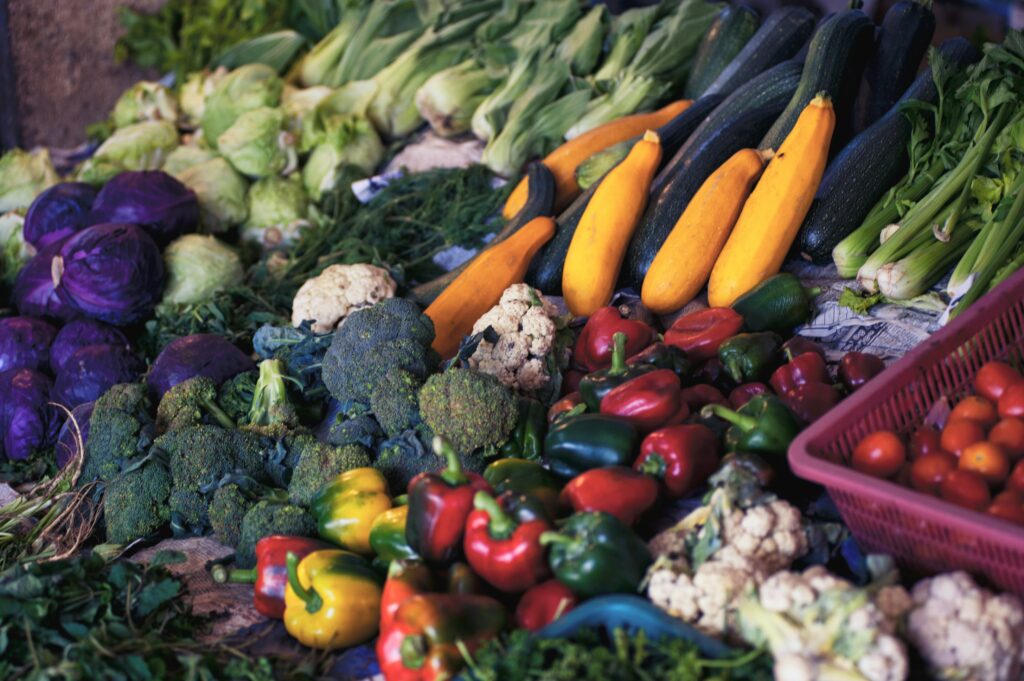Vegetables are often hailed as the cornerstone of a healthy diet, packed with essential vitamins, minerals, and fiber. But in the battle between fresh and flash-frozen vegetables, which comes out on top? The answer might surprise you.
Flash-frozen vegetables, harvested and frozen at peak ripeness, often retain more nutrients than their fresh counterparts, especially if those fresh vegetables spend days in transit or sitting on grocery store shelves.

Image by Unsplash
What Are Flash-Frozen Vegetables?
Flash-freezing is a method that involves freezing food quickly at extremely low temperatures. This process locks in the food’s nutrients, texture, and flavor. For vegetables, the journey begins with harvesting at peak ripeness.
After harvesting, vegetables are typically blanched (briefly boiled or steamed) to deactivate enzymes that could degrade quality over time. They are then rapidly frozen, often within hours of being picked.
Unlike traditional freezing, flash-freezing minimizes the formation of large ice crystals, which can damage cell structure and lead to mushy textures.
Flash-frozen vegetables are commonly found in the frozen food aisle and include everything from peas and carrots to spinach and broccoli.
Fresh vs Flash-Frozen Vegetables
The nutritional value of vegetables can vary depending on how they are grown, harvested, stored, and prepared. Let’s examine how fresh and flash-frozen veggies stack up against each other.
Nutrient Retention in Flash-Frozen Veggies
Flash-frozen vegetables are harvested at their peak ripeness, when they are most nutrient-dense. The rapid freezing process helps preserve their vitamins and minerals. For example:
- Vitamin C: A study published found that frozen vegetables like peas and green beans retained vitamin C levels comparable to or even higher than their fresh counterparts.
- Antioxidants: Flash-freezing preserves antioxidants such as beta-carotene, which are sensitive to light and heat.
Nutrient Loss in Fresh Veggies
Fresh vegetables start losing nutrients as soon as they are harvested. Exposure to air, light, and temperature fluctuations during transport and storage can degrade their nutritional value. For instance:
- Spinach can lose up to 90% of its vitamin C content within 24 hours of being picked if not stored properly.
- By the time fresh vegetables reach your plate, they may have spent a week or more in transit and on store shelves.
Advantages of Flash-Frozen Vegetables
1. Convenience
One of the most significant benefits of flash-frozen vegetables is their convenience. They come pre-washed, pre-cut, and ready to cook, saving time and effort in the kitchen.
2. Reduced Food Waste
Flash-frozen vegetables have a much longer shelf life than fresh produce. This means you’re less likely to throw away spoiled vegetables, reducing food waste and saving money.
3. Year-Round Availability
Seasonal vegetables like corn or asparagus may only be available fresh for a few months each year. Flash-freezing ensures these vegetables are accessible year-round.
4. Cost-Effectiveness
Frozen vegetables are often more affordable than fresh ones, particularly when the fresh versions are out of season. They also allow you to buy in bulk without worrying about spoilage.
Limitations of Flash-Frozen Vegetables
While flash-frozen vegetables offer numerous benefits, they are not without drawbacks:
- Texture and Flavor: Some vegetables, like zucchini or bell peppers, may lose their crispness and develop a softer texture after freezing.
- Additives: Some frozen vegetable products contain added salt, sugar, or sauces, which can diminish their healthfulness. Always check the ingredient label.
- Environmental Concerns: The plastic packaging used for frozen vegetables contributes to waste. Opt for recyclable or biodegradable packaging when possible.
Practical Tips for Choosing and Using Flash-Frozen Vegetables
To get the most out of flash-frozen vegetables, follow these tips:
- Choose Plain Varieties:
- Avoid vegetables with added sauces, salt, or sugar.
- Look for labels that say “no additives” or “100% vegetables.”
- Cook Smart:
- Steaming or microwaving frozen vegetables helps retain more nutrients compared to boiling.
- Avoid overcooking to preserve texture and flavor.
- Store Properly:
- Keep frozen vegetables at a consistent temperature to prevent freezer burn.
So, are flash-frozen vegetables as healthy as fresh ones? The answer depends on the context. Flash-frozen vegetables often retain more nutrients than fresh produce that has been stored for days or weeks.
They’re convenient, affordable, and available year-round, making them an excellent addition to any diet.
Ultimately, the best choice is the one that fits your lifestyle and ensures you’re eating enough vegetables, whether fresh or frozen. Focus on variety and balance, and you’ll reap the health benefits of these nutritional powerhouses.









